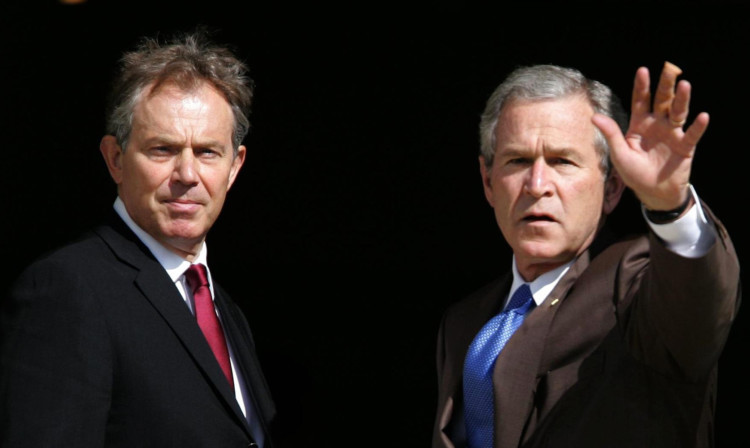
Thanks to the Iraq War, security is everywhere. So is suspicion.
Rarely has a gist earned so many column inches.
But a flavour is all we’ll get of high-ranking conversations that brought Britain into the Iraq War a conflict which ended the life and reign of Sadaam Hussein but also killed half a million Iraqis through bombings, injuries and disease.
More than 4,000 coalition troops were also killed among them Rose Gentle’s 19-year-old son Gordon.
According to an American academic: “War kills people in all kinds of ways. And it exacts a toll on the invaders as well as the invaded.”
Very true.
It’s hard to remember now, but before Iraq, British citizens could walk relatively freely in the world. Now our Embassies can be easily spotted they’re the ones that resemble a mini Fort Knox. Our airports employ more security staff than pilots and holidaymakers must virtually undress before being pronounced safe to travel.
Glasgow’s Commonwealth Games is set to spend more on security than hospitality for our athletic guests. The Scottish Parliament has no cash for dualling the A9 but managed to find £8.5 million to improve security with a new entrance, scanning machines and retractable bollards.
Thanks to the Iraq War, security is everywhere. So is suspicion.
The dodgy dossier put paid to blind faith in British Governments. Now the authorities regard us with fear and suspicion. And it’s mutual. We greet every cast-iron Government guarantee with mistrust and contempt. All of this has weakened democracy, changed our way of life and cost billions. This is the enduring legacy of the Iraq War.
It’s worth reminding ourselves of what we’ve lost before asking if we need to know more about phone exchanges between Tony Blair and George W. Bush than “quotes and gists” all we’re set to be offered in the Chilcot enquiry report, the latest long-running investigation into the conduct of the Iraq War
Campaigners suspect the former Labour Prime Minister committed Britain to war before getting the backing of Parliament or checking its legality.
But at the insistence of Americans and British civil servants the information disclosed in the Chilcot Report will be merely edited highlights which “do not reflect President Bush’s views”.
This simply isn’t good enough. Families of soldiers who died in Iraq want 25 notes between Blair and Bush and 130 records of conversations between the two men published in full. They are absolutely right.
Not just my view but the opinion of that well-known leftie and agitator Sir John Major. On Friday he joined the growing chorus calling for publication.
“Firstly, [non publication] will leave suspicions unresolved and [they] will fester and maybe worsen,” he said. “Secondly, withholding them is very embarrassing for Mr Blair [who] brought in the Freedom of Information Act.”
And thirdly, the whole epic saga is heartbreaking for long suffering mothers like Rose Gentle, who fears “we’ll never get at the truth now”.
We must know exactly why, where, when and how Blair agreed to send British servicemen and women to war in search of non-existent weapons of mass destruction. We need to know if Blair and his team ever checked the legality of their actions. We need to know to put the cancer of that war behind us. And sooner or later we will.
Another Whitehall Whitewash is simply unacceptable. Journalists will press for full disclosure using freedom of information legislation.
Tony Blair could yet surprise everyone, earn a tiny shred of respect and volunteer his side of those vital exchanges with George Dubya.
I’m not holding my breath.

Enjoy the convenience of having The Sunday Post delivered as a digital ePaper straight to your smartphone, tablet or computer.
Subscribe for only £5.49 a month and enjoy all the benefits of the printed paper as a digital replica.
Subscribe